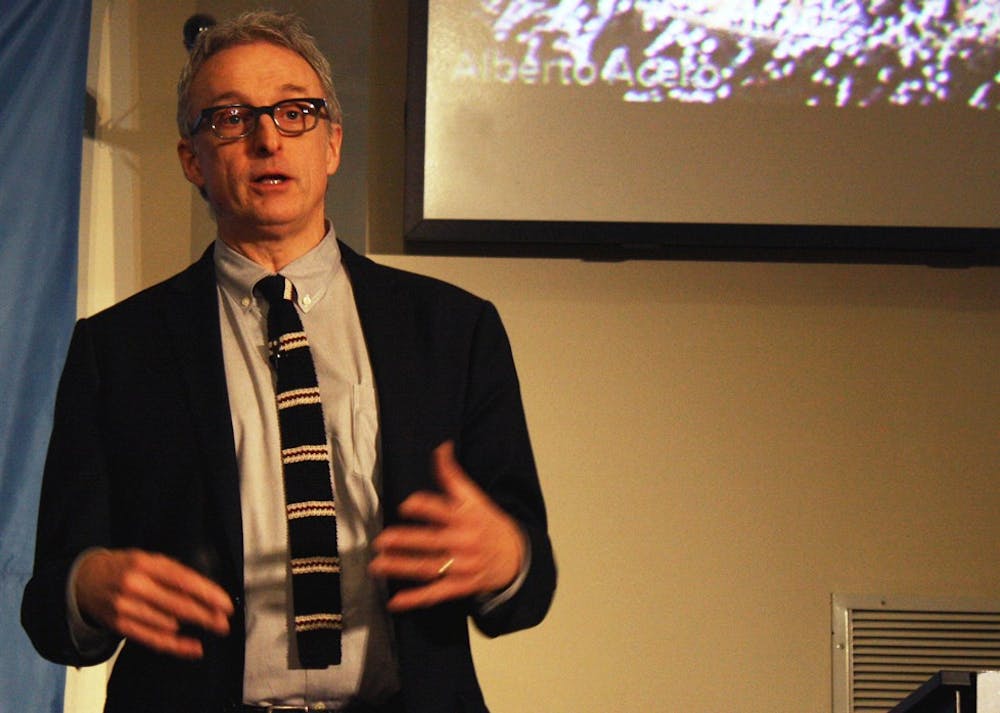Contrary to what “The Social Network” would have movie-goers believe, David Kirkpatrick said Mark Zuckerberg has no trouble with women.
That, among other inaccuracies in the Oscar-winning movie, were exposed Thursday, when Kirkpatrick delivered a speech at UNC as part of the Roy H. Park Distinguished Lecture Series.
“He isn’t like the movie,” he said. “He is not angry. He is an incredibly positive and confident person. He is not neurotic and has no trouble with women.”
Kirkpatrick, the author who literally wrote the book on Zuckerberg with “The Facebook Effect: The Inside Story of the Company That Is Connecting the World,” discussed 10 lessons from Facebook before a packed crowd in Carroll Hall.
In one lesson, titled “It’s hard to hide,” Kirkpatrick said the world is becoming more transparent — and some people are wary of the amount of personal information on the site.
“The New York Department of Motor Vehicles knows less about me than Facebook does,” he said. “Facebook is the first universal directory that has ever existed.”
Kirkpatrick described Zuckerberg as likely unimpressed with having 750 million followers.
Rather, he said Zuckerberg won’t be satisfied until he realizes it’s impossible to get the entire world.
“It is the reason he gets up in the morning,” Kirkpatrick said.




